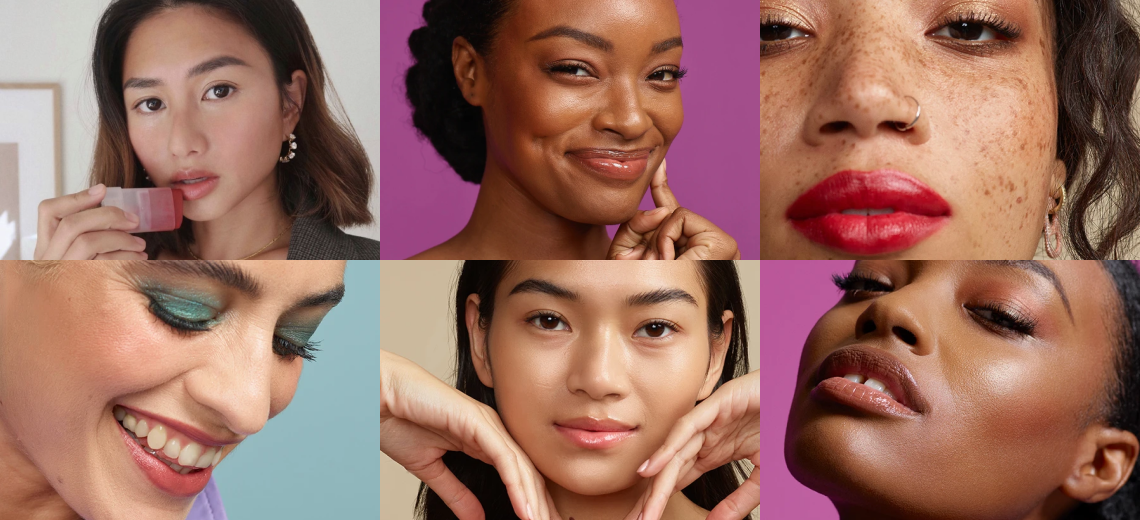The next billion-dollar beauty brand likely won’t come from industry insiders, but instead from industry outsiders.
Several beauty accelerators designed to support fledgling brands have emerged in the last five years. There’s Sephora Accelerate, Credo for Change, Ulta Beauty’s MUSE Accelerator, Tower28’s Clean Beauty Summer School, True Beauty Ventures x Bridge Mentorship, and Glow Recipe Mentorship, to name a few. Their rise signals a shift that’s revealing, in terms of the state of the beauty: Innovation isn’t coming from the top within corporations; it’s coming from people outside the industry, especially founders of color.
Accelerators play an important role in bridging the information gap and helping founders realize their vision through mentorship. In 2019, Sandra Velasquez founded Nopalera, a bath and body wellness brand that pays homage to her Mexican roots. Recalling the very early days of Nopalera, she said she struggled to find manufacturers, 3PL warehouses and co-packers.
“I [came from] outside the industry, so it was a lot of effort on my part to find people who could help me,” said Velasquez. “Cohorts and accelerators introduced me to people who were then able to recommend [the third-party partners] I needed.”
Keta Burke-Williams, founder of fragrance brand Ourside, shared a similar story. The first accelerator she participated in was Tower28’s Clean Beauty Summer School. She was paired with a mentor who helped her find a fragrance manufacturer.
“I had thoughts and perspectives on what it meant to create and run a company, but obviously, there are many nuances within the beauty and fragrance landscape,” she said.
Many beauty accelerators emerged in response to the 2020 Black Lives Matter movement’s spotlight on racism within the beauty industry, which also drove instances of activism like brands signing on for Aurora James’s 15 Percent Pledge. The 15 Percent Pledge called on retailers to support BIPOC founders by selling a larger percentage of their brands.
In 2022, Credo For Change opened its applications to any BIPOC beauty brand, regardless of its stage of growth, a move signaling Credo’s commitment to diversity within the beauty industry. Sephora relaunched its accelerator program in 2021 to support founders of color, with the result being Sephora’s first-ever cohort exclusively consisting of founders of color. Glow Recipe’s mentorship program requires that businesses are POC-owned and founded. They must also be U.S.-based and have four or fewer full-time employees.
Rauvan Dulay, vp of merchandising, business development and strategy at Sephora, said, “One of the most exciting things about the revamp of the program is that all participants are now given the opportunity to launch their brands at Sephora. In the past year, we’ve introduced six new BIPOC-owned brands to Sephora via the Accelerate program, with even more scheduled to debut within the coming months.” Since the relaunch, all participating Sephora Accelerate brands have found their way onto Sephora shelves, including Kulfi Beauty, Topicals and 54 Thrones.
Given the beauty industry’s complexity, it is not unusual for new beauty founders to go through multiple accelerators before getting their footing. For her part, Velasquez has been through six accelerators, including those by True Beauty Ventures, Tower28 Clean Beauty School, where she won the Clean Beauty Summer School pitch, and Pharrell Williams’ Black Ambition, where she’s currently a finalist for its $1 million funding prize. Unlike traditional accelerators such as Techstars, Black Ambition does not take an equity stake from participating brands.
Despite awarding prize money, beauty accelerators tend to focus more on education and access than funding. As the 2022 winner of Tower28’s pitch contest, Velasquez received a $10,000 grant from New Voices Foundation, which supports female entrepreneurs of color, as well as valuable time with both retail experts at field team agency Headcount and legal teams at Weinberg Gonser LLP. She was also guaranteed buyer meetings with Sephora and Ulta Beauty.
Beauty accelerators can also have a significant influence on brands at later stages of growth. While accelerators are typically designed to nurture a new era of beauty founders, some founders continue to join accelerators for networking opportunities. That includes the chance to network with established beauty leaders, as well as fellow founders in the program.
“I network with the other founders in the group,” said Christina Tegbe, founder of 54 Thrones, a skin-care brand that celebrates traditional African beauty rituals. Tegbe has participated in Sephora Accelerate, Credo For Change and Glow Recipe’s accelerator. “[Talking to other founders] is going to add value. These founders were also chosen to be in the program. At the end of the day, it’s all about [establishing] relationships, and people want to work with people they like,” she said.
As consumers’ desire for authentic brands grows, these accelerator-bred founders are poised to define the future of beauty, and retailers know it.
Rauvan Dulay of Sephora said, “The Sephora Accelerate program has a proven track record of finding emerging brands with incredible potential and helping to grow them into viable businesses. One of our main focus areas at Sephora is product differentiation. It’s our job to stay ahead of trends and always deliver an evolving assortment of products and brands that truly resonate with our clients.”
Leading retailers like Sephora and Ulta Beauty know they need to get in front of emerging brands everywhere, even outside their own programs.
And legacy companies are finally catching on to outside talents’ potential. In October, The Estée Lauder Companies’ venture arm New Incubation Ventures partnered with FounderMade, a platform and event series for early-stage consumer brands, to launch the Brand Innovation Competition. Thirty emerging beauty brands were selected to meet one-on-one with the New Incubation Ventures team during the FounderMade West Show in October. Nopalera was one of those 30 brands.
“Legacy brands need connections to people like me because we are the fresh talent. We are the ones that are creating authentic brands out of nothing,” said Velasquez.




